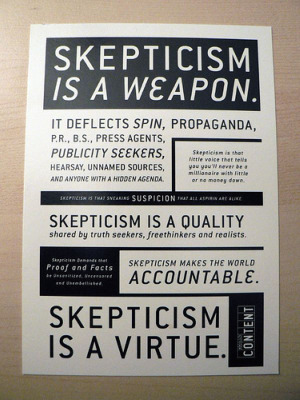
I recently submitted a letter to the editor to the local Times Leader newspaper and it was published, with little or no alterations that criticizes ‘paranormal investigation’ and flatly, with no reserve, calls it pseudoscience. While this critique is mainly focused on a local group, NEPA Paranormal, the points made can generally be applied to any paranormal group or claims. This critique, though, is quite limited (less than 250 words), but I get my point across.
I’m really happy about this publication and give the Times Leader editor lots of credit for publishing this critique. Unfortunately, there is an extreme lack of skepticism in the media and the pseudoscience to skepticism ratio is overwhelming toward pseudoscience. I also published a slightly longer version of this critique on my Examiner.com page. Without further delay, this is the letter as published in the Times Leader:
Paranormal group ‘science’ disputed
A recently published article titled “Paranormal investigators take on Swetland Homestead” features members of the local group NEPA Paranormal investigating the Swetland Homestead in Wyoming. Although NEPA Paranormal claims that its work is scientific, its work is anything but scientific.
NEPA Paranormal, according to its website’s home page, takes “a scientific approach to the paranormal,” but its “About Us” page notes that the members “do believe the paranormal exists, and want some answers.” Right from the start, NEPA Paranormal members are not acting scientifically; they are starting with an unsubstantiated belief that the paranormal exists when those who are properly scientific should start from a neutral position of non-belief.
NEPA Paranormal’s website also notes the use of “professional equipment” such as “geophones” (“to pick up vibrations such as phantom footsteps”), EMF meters (the group has “theories that spirits may givr (sic) off EMF when trying to manifest itself (sic)”) and EVP Field Processors (to capture “human-sounding voices from an unknown source”). Such devices are not endorsed by scientific studies, but rather rejected.
Paranormal investigation similar to that of NEPA Paranormal is not scientific, but rather is pseudo-scientific. Operating under the guise of science, paranormal investigators lack sufficient evidence to establish their claims, endorse unprovable claims, present information that runs contrary to scientific findings, and attribute the unexplained and ambiguous to paranormal activity instead of saying “I don’t know” or looking for naturalistic explanations.